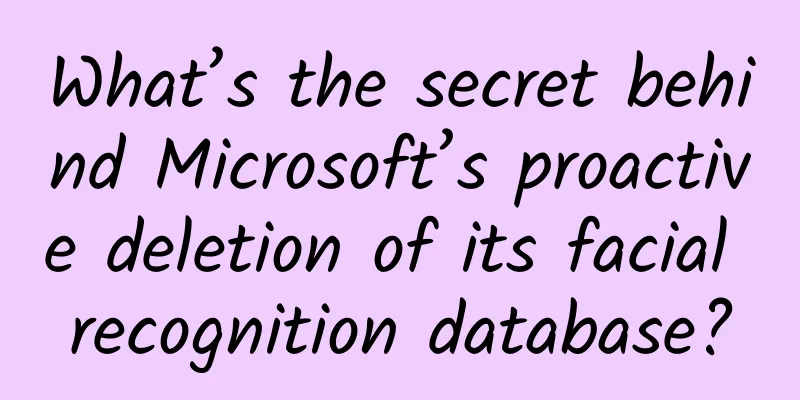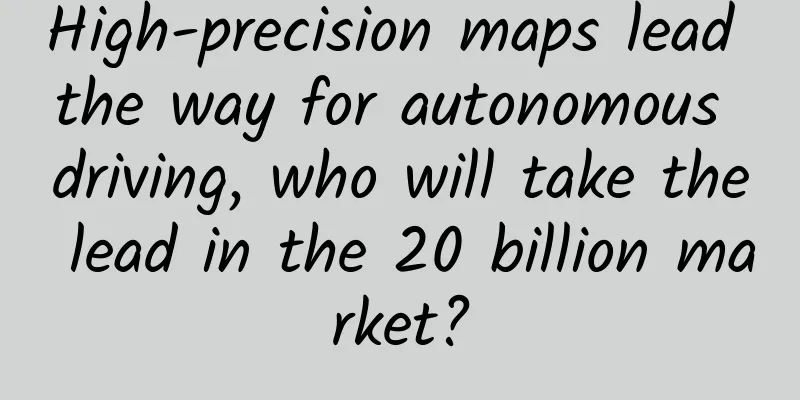What’s the secret behind Microsoft’s proactive deletion of its facial recognition database?

1. Microsoft quietly deleted its facial recognition databaseMicrosoft has reportedly quietly deleted its largest public face recognition database, MS Celeb. The database was established in 2016, and Microsoft described it as the world's largest public face recognition database, with more than 10 million images. There are various speculations in society about Microsoft's behavior. One speculation is that Microsoft is afraid. Some people may say, who would such a powerful company like Microsoft be afraid of? But even the most powerful companies have their fears. What they fear most is privacy and the laws that protect privacy. Microsoft is worried that the database will infringe on the public's privacy rights, thereby generating huge legal risks, and took proactive actions before the risks came. According to some public information, these photos in the MS Celeb data did not obtain the permission of the people in the photos. Using the photos for commercial or other purposes without the permission of the people in the photos will infringe on the privacy rights of others.
2. The United States has strong privacy protectionIn Chinese, the word "Privacy" seems to be inherently derogatory, but in English, "Privacy" is a very respected concept. The importance that Americans place on "Privacy" is incomprehensible to many people from other cultural backgrounds. For example, when the United States conducted a census in 2000, many people boycotted it on the grounds that the census questionnaire violated citizens' privacy. The right to privacy is also a hot issue in my country, but the protection is relatively limited. In comparison, the protection of the right to privacy in the United States is quite strong, and those who violate citizens' privacy often face legal penalties. The right to privacy in the United States was not recognized by the public and judicial organs at the beginning, and it also went through a complicated process. The legislation on the right to privacy also developed from nothing to something, from ordinary to special. The Privacy Act promulgated in 1974 in the United States has become the guiding principle of privacy protection in the United States because it defines the right to privacy as an independent personal right. In addition, the special legislation on the right to privacy in the United States also has strong protection for the right to privacy, such as the Electronic Communications Privacy Act (1986), the Children's Online Privacy Protection Act (1998), the Online Privacy Act (1999), the E-Government Act (2002), and the Consumer Privacy Act (2012). In a sense, in the United States, the right to privacy has developed into a gateway concept and a door to all potential human rights, with a wide extension. Objectively speaking, the privacy protection system has been the most complete in the American legal system in the past half century. From the concept, system to the application of law, it has demonstrated the great importance attached to the protection of citizens' privacy rights and also demonstrated what is institutional confidence. Do you remember that Facebook CEO Mark Zuckerberg was questioned by many lawmakers for five hours because of user privacy and data leakage, and Apple had a high-intensity confrontation with FB1 in order to protect citizens' privacy in the mobile phone decoding case. These all reflect that in a country with a relatively complete privacy protection system, the protection of privacy rights has a strong social demand and mass base. In May 2019, the city of San Francisco, California, just passed a legislation prohibiting local police and other municipal agencies from using facial recognition technology to prevent infringement of personal privacy. The passage of this bill better demonstrated the hidden dangers brought by facial recognition technology. 3. Facial recognition technology and privacy rights need to be balancedIn fact, face recognition technology has been widely used in my country, and the public is often "face recognized" inadvertently. Once the face is leaked as personal biometric information, it is basically leaked for life, with no room for maneuver. It can be said that face recognition meets people's convenience requirements, but at the expense of security. Many scholars have commented: "The convenience and security of face recognition cannot be achieved at the same time." So how to regulate face recognition? There are precedents in Illinois and Texas in the United States, but my country has not yet formulated relevant laws and regulations. In my country, face recognition technology will inevitably be more widely used. However, the technology itself is value-free, but the subject of using the technology can be used for good or evil. This requires the establishment of corresponding laws, regulations and industry standards as soon as possible to seek a balance between social security and personal privacy. |
<<: In terms of privacy protection, what two changes did iOS 14.5 make?
Recommend
Is Youqianhua loan reliable? How about it?
How about a Youqianhua loan? Is it reliable? Amon...
Caixuetang's "Stock Market Trend Trading Method 1+2+3" deciphers the main trading techniques and gives you the supreme strategy system
Caixuetang's "Stock Market Trend Trading...
What are the most effective APP promotion channels at present?
What exactly is APP promotion for? Is it a channe...
Confirmed! 350 million years ago, the majestic Qinling Mountains were a vast ocean!
Fossils found in northwestern Hubei prove that Qi...
How to write promotional ideas, write like this!
Why does my ad not have any traffic even though i...
From 10,000+ global user reviews, I found these 6 points
Do you think that user reviews of apps are valuab...
The self-revolution of the small circle Meizu Note 2 hands-on experience
In addition to the ultra-narrow bezels and slight...
Xiaohongshu is a project that promotes products and makes money. How does Xiaohongshu make money by promoting products?
Every industry needs users, and Xiaohongshu is th...
Thunderbolt Bridge: Laptops running wild with GTX 780 Ti
Laptop graphics cards have always been weak, and e...
Why do some landing pages make you want to buy after seeing them?
What’s changing in digital advertising ? What is ...
MultiChoiceAdapter—Easy to make ListView support multiple selections
introduce An adapter that provides multiple choic...
NIO Financial Report: NIO's revenue in Q3 2023 was 19.07 billion yuan, a year-on-year increase of 46.6%
NIO released its third quarter financial report f...
2016 is the most difficult year for the industry, but the color TV market still has opportunities to break through
“2016 may be the most difficult year.” At the &qu...
Creative analysis of educational and training advertising materials!
According to QuestMobile data, the online educati...
Comment | Wild boars are planned to be removed from the "Three Haves" list, and wildlife protection must also keep pace with the times
As the ecology recovers, wild boars may no longer...









